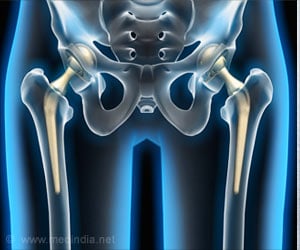
Shenoy and colleagues tested a brain-controlled cursor meant to operate a virtual keyboard. Shenoy said, "The thought-controlled keypad would allow a person with paralysis or ALS to run an electronic wheelchair and use a computer or tablet."
The US Food and Drug Administration (FDA) has also given the research team its nod to conduct a pilot clinical trial of their thought-controlled cursor on people with spinal cord injuries. Shenoy further added, "This is a fundamentally new approach that can be further refined and optimized to give brain-controlled prostheses greater performance, and therefore greater clinical viability. When we type or perform other precise tasks, our brains and muscles usually work together effortlessly. But when a neurological disease or spinal cord injury severs the connection between the brain and limbs, once-easy motions become difficult or impossible."
In recent years, researchers have sought to give people suffering from such conditions some restored motor function by developing thought-controlled prostheses. These devices tap into the relevant regions of the brain, bypass damaged connections and deliver thought commands to devices such as virtual keypads.
The findings appeared in Nature Communications.
Source-IANS








